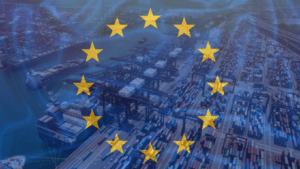Another great reason to understand your supply chain!
From May issue, NZ Manufacturer magazine www.nzmanufacturer.co.nz
Are you 100% sure you know what’s in your supply chain? Do you fully understand the work practices involved?
Yes and yes? Then you’re in good shape to keep selling to the European Union when the new European Supply Chain Act takes effect. No and no? Then you’ve work to do!
New EU legislation will require many suppliers to EU companies to better manage their social and environmental impacts. Here’s the acronym: Corporate Sustainability Due Diligence Directive (CSDDD or CS3D).
Even if you don’t trade with the EU, expect to see more focus on supply chains, right around the world. Why? Because supply chains are notorious sources of social and environmental ‘hotspots’. Wages below subsistence. Forced labour. Treacherous working conditions. Toxic chemicals. Polluted waterways. Deforestation. The list goes on.
The draft European Supply Chain Act
Read on for general information about the changes.
What’s happening?
The European Parliament has voted for the draft bill. Parties are now negotiating a common position to pass the bill into law.
What’s the aim of the new law?
It’s one we can all sign up to: a fairer, safer, more sustainable global economy.
Who does the law cover?
It covers many larger companies based in the EU. Some companies outside the EU are covered if their EU turnover is large. Small and medium-sized businesses are not directly affected. However, the law will affect them if they supply to larger companies.
What does the law require?
Affected companies must manage social and environmental impacts across their value chains. (This is currently voluntary.) These value chains include the companies’ direct suppliers (maybe your business?) and indirect suppliers too (your business’ suppliers?) The law is stricter than most existing national legislation.
What does the law mean in practical terms?
Companies must set up processes and systems to identify actual or potential negative impacts on human rights and the environment and to prevent, reduce and fix these impacts. They must provide clear, publicly available information, including an annual report, and ensure everyone in their supply chain can raise complaints.
Larger companies must show how they will help meet the Paris Climate Agreement’s targets to reduce greenhouse gas emissions.
When does it come into effect?
Once the law is passed (likely this year), EU states have two years to adopt it. Companies have up to five years to transition, depending on their size.
What are the penalties for EU companies?
They include heavy fines and civil action.
What this means for New Zealand manufacturers – and how you’ll benefit
If you supply to the EU
If you supply materials, intermediary goods or final goods to a company covered by the new law, you will need to show that you are actively managing your social and environmental impacts. There are many benefits.
- Chances are you’ve invested many years and dollars building up your EU market. Don’t risk it!
- You’ll be able to market your products confidently – in all markets. You may also be able to gain third-party certifications that build market share and brand loyalty.
- Delving into your supply chain is likely to identify ways to reduce costs and improve your products and processes.
- You’ll strengthen relationships. Investors favour companies that manage their risks. Customers and suppliers want to trade with companies that are around for the long haul. Employees want to work for companies that have sustainability top-of-mind.
If you buy EU goods
The new regulations will help you manage your social and environmental impacts. You’ll also reduce the risk of a nasty shock, such as learning that your raw materials contain banned chemicals, and be able to market your products confidently.
How to prepare for the new legislation
Get started now!
- Understand and manage the environmental impacts of your products
Consider doing a Life Cycle Assessment (LCA) to measure your products’ environmental footprints over their life cycles. An LCA provides data and benchmarks to help you understand and manage environmental impacts such as the carbon you release and water you use.
- Understand and manage your supply chain
A responsible procurement framework will help you identify and manage potential risks. Include a supplier code of conduct to show your suppliers how they can help you meet your social and environmental standards. Use an annual questionnaire to let them explain how they run their businesses and what they expect of their own suppliers.
- Work with your suppliers to reduce their impacts
Everyone wins. This is particularly important to reduce Scope 3 carbon emissions that come from the raw materials, goods and services you buy.
- Double-check that you comply with all NZ laws
These include employment, health and safety and environment laws and climate disclosures.
- Communicate – without greenwash
Enlist support from your suppliers, customers and team to help you keep improving.



